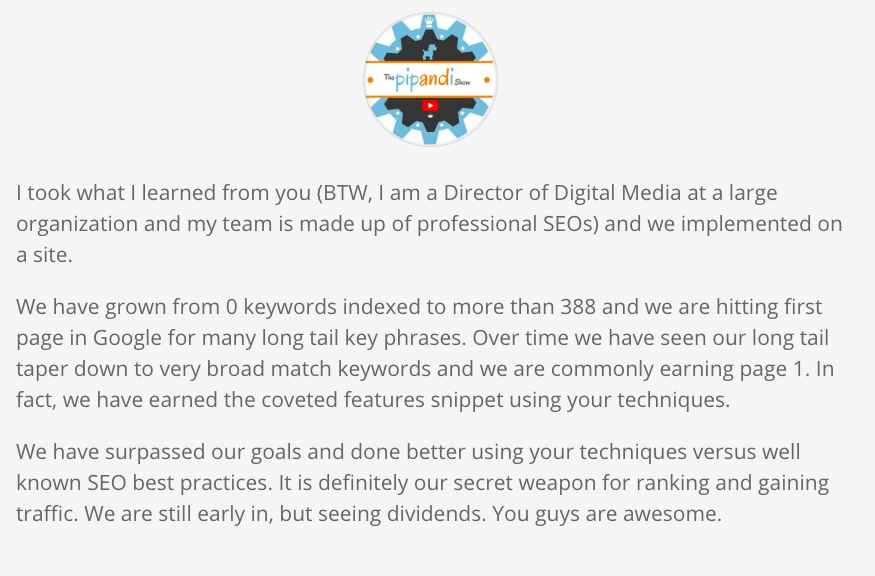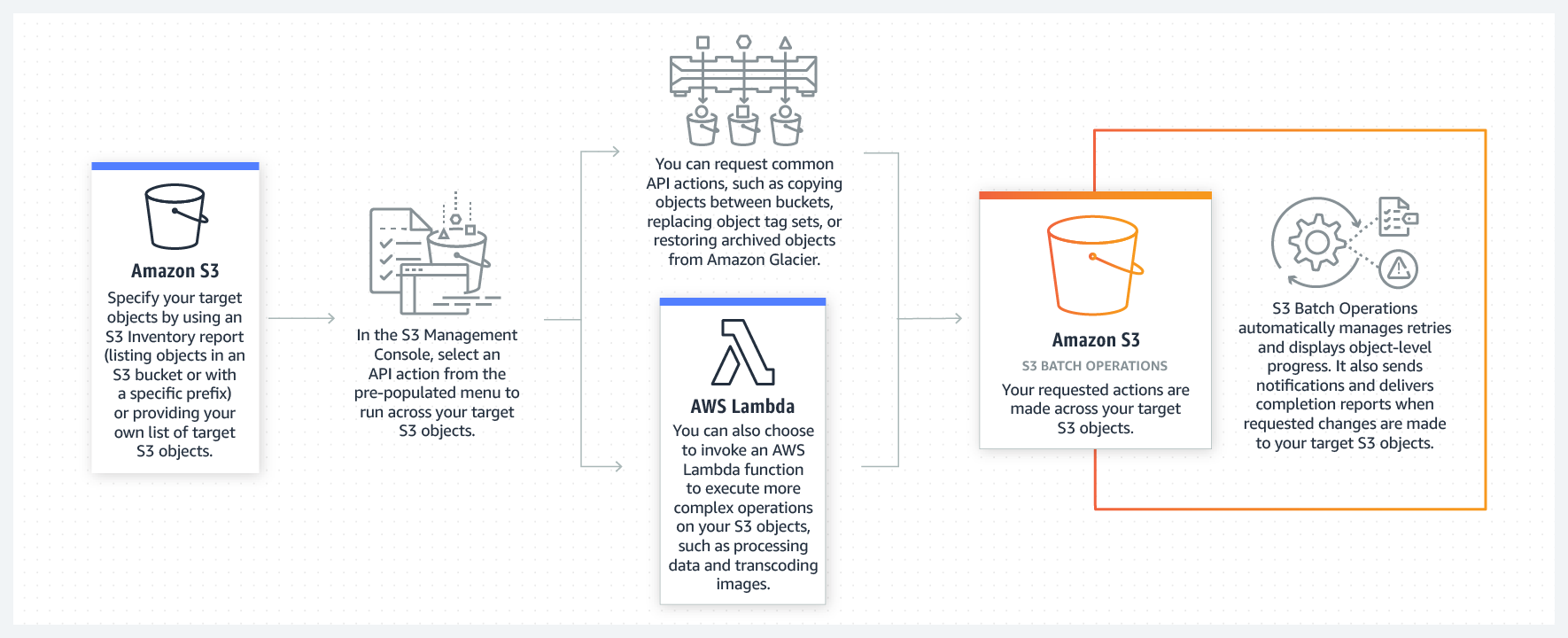With the ever-growing number of websites on the internet with a variety of functionalities and applications, it’s important that your site performs well if it has to rank high above the crowd.
All this hinges around the type of web hosting service you choose to use.
Basically, your website cannot be “live” on the internet without a web hosting service provider.
Web hosts are services that provide cloud computing storage space for your website files and make it accessible to virtually everyone on the internet.
The platform you choose for your site determines the volume of traffic you’ll receive, the bandwidth available, percentage of uptime, support services, and a lot more based on their pricing plans.
Consequently, selecting a web hosting service will be affected by the size of your site – large or small – its scalability, and the resources at your disposal.
Among the most popular web hosting services on the market today are WP Engine and Amazon Web Services (AWS), which we’ll pit against each other in this comparison. Read on to find out our overall winner for this round.
What is WP Engine?

WP Engine was established in 2010 to provide ‘Managed Hosting Services’ to owners whose blogs and websites are built with WordPress CMS.
It provides its clients with series of WordPress-centric features such as Genesis framework, development environments, global CDN, automated SSL certificates, 35+ StudioPress Themes, and much more, as we’ll see in the list of features.
Some of their high-profile clientele include Thomson Reuters, AFV, Trend Micro, ASU, Under Armour, and Arizona State University, among others.
WordPress CMS is the world’s leading CMS with more than 30 percent of websites on the internet using the platform.
This makes WP Engine one of the preferred choices for web designers to easily launch any kind of WordPress website without hassle.
Its core benefits, especially for website designers, include saving time and effort, security, less downtime, free staging environment, daily backups, dedicated support and a bucket load of features.
WP Engine incorporates the following features:
A robust architecture, unparalleled speed, fool-proof security and round the clock engineering support, WP Engine offers the best-in-class Wordpress hosting experience.
WP Engine Genesis Framework

With the Genesis Framework available to WP Engine users, you can build WordPress sites in no time, manage them easily, personalize your website/blog based on your preferences, and get your website published quickly.
WP Engine Staging Sites

WP Engine offers staging sites that let you test the changes you made on a clone website before going online, besides testing out other new features.
WP Engine Copy Site
The Copy Site feature is a great tool for replicating a website instead of building it from scratch. It also makes it easy to swap different types of content across your site.
WP Engine Performance Intelligent Tool

The Performance Intelligent tool monitors your site’s performance using the page speed performance tool, New Relic, and Integrated Google Analytics.
WP Engine Migration Plugin Tool

Migration Plugin Tool is an automated migration WP Engine feature that allows you to migrate your website/blog from other web hosts to WP Engine.
The best part is that you do not have to be an expert to use this feature to migrate to WP Engine.
WP Engine Ecosystem Integration

WP Engine integrates with the likes of Google, Amazon, Cloudflare, New Relic, BigCommerce, and other tech solution providers to provide you with a comprehensive WordPress hosting solution on its unified platform.
WP Engine Performance

Websites hosted on WP Engine enjoy high performance in terms of availability/uptime, speed, scalability, and security.
This is particularly helpful in keeping your website up-and-running to serve your website visitors.
A robust architecture, unparalleled speed, fool-proof security and round the clock engineering support, WP Engine offers the best-in-class Wordpress hosting experience.
Other salient WP Engine features include:
- Regular security auto-updates
- Fast disaster recovery
- Regular offsite backup to prevent data loss
- Geo IP
- Billing transfer
WP Engine Web Hosting Pricing Packages

All the available plans are based on ‘Managed Hosting Service,’ a type of hosting that offers you less control over your server’s optimization and maintenance, but are taken over by WP Engine’s experts.
Thus, you don’t have to worry about the technical tasks associated with running and maintaining your websites.
WP Engine offers the following pricing plans:
1. Startup Plan – for 1 website (ideal for a blog or a small website)
- Starting at $35 (USD)/month
- 25,000 Visits / month
- 10 GB Local storage
- 50 GB Monthly Bandwidth
Free Add-ons include:
- Genesis Framework
- 35+ StudioPress Themes
- 24/7 chat support
- Dev, Stage, Prod Environments
- Transferable Sites
- PHP 7.3 ready
- LargeFS
- Global CDN
- Page Performance
- Automated SSL certificates
- SSH Gateway
2. Growth Plan – for 5 websites (Ideal for a growing business)
- Starting at $115 (USD)/month
- 100,000 Visits / month
- 20 GB Local storage
- 200 GB
- Bandwidth / month
Free Add-ons include:
- All Starter Plan free Add-ons, plus:
- Imported SSL certificates
- 24/7 phone support
3. Scale Plan – for 15 websites (ideal for Medium Businesses)
- Starting at $290(USD)/month
- 400,000 Visits / month
- 30 GB Local storage
- 400 GB Bandwidth / month
Free Add-ons includes:
All Growth Plan free Add-ons
4. Custom Plan – for 25+ websites
- Custom pricing
- Million Visits/month
- 100GB – 1TB Local storage
- 400 GB+ Bandwidth / month
Free Add-ons includes:
- All Scale Plan free Add-ons
- WordPress Multisite
- GeoTarget
- Content Performance
- Consultative onboarding
- Readiness assessment
For the Starter, Growth, and Scale pricing plans, you get two free months when you opt for an annual subscription.
A robust architecture, unparalleled speed, fool-proof security and round the clock engineering support, WP Engine offers the best-in-class Wordpress hosting experience.
WP Engine Pros and Cons
Pros
- Free access to 35+ StudioPress WordPress themes and Genesis Framework
- Free backups
- Built-in staging environments
- Built-in EverCache caching plugin
- 60 day money-back guarantee
- Free SSL Certificate
- StackPath CDN integration
- Enterprise-grade WordPress security
- 24/7 support
Cons
- Email hosting and domain name registration is not provided
- A long list of disallowed WordPress Plugins
- No CPanel (User Portal)
- Premium pricing plans
What is AWS?

Amazon Web Services (or AWS) is a cloud computing platform established by Amazon to provide on-demand web services to individuals, SMBs, and governments.
Established by Amazon in 2006, AWS has evolved over the years into an Infrastructure-as-a-Service (IaaS).
This is because of its ever-increasing features geared towards cloud computing, networking, applications management, storage, deployment, and database management.
It has also expanded its offerings to provide mobile services, robotics, media services, IoT, Blockchain, web hosting, and a lot more.
Some of their high-profile clientele includes Netflix, Unilever, Airbnb, Philips, Expedia, and Intuit, among others.
This goes to show that AWS can service all kinds of web-related needs of their prospective clients.
Unlike other web hosts, AWS is a versatile Infrastructure-as-a-Service (IaaS) provider with a series of web services which are tailored for all kinds of web clients.
However, all its features are broadly classified into five categories namely: Compute, Storage, Database, Networking & Content Delivery, as well as Migration & Transfer.
AWS Compute

With any of the Compute service, you can develop, run, deploy, and scale your websites, cloud or native applications without hassles.
AWS Storage

AWS offers several cloud storage services which supports all forms of cloud storage as well as cloud-based data migration.
AWS Database

With the AWS Database services, you can manage all kinds of databases, whether RDMS, desktop database programs, text database, as well as object-oriented databases.
AWS Networking & Content Delivery

With the networking & content delivery services, you can easily streamline your website loading times by serving contents at a faster pace.
This facilitates high performance and deliverability.
AWS Migration & Transfer

Securely move your website, application, database, physical, or virtual server from either on-premise environment or cloud hosting facility to AWS.
AWS Web Hosting Pricing Packages

For web hosting, AWS offers the following web hosting packages:
Simple Website Hosting
This website hosting solution is ideal for simple websites, preferably websites which run a Content Management System (CMS), such as WordPress or a development stack, such as LAMP.
Nevertheless, it’s highly recommended for small or medium-traffic websites with the need for frequent content changes, mainly marketing websites or blogs.
It proves a powerful platform as a starting point for many new websites. However, websites hosted with this package are highly unlikely to scale beyond 5 servers.
Note: To access the Simple Website Hosting Package, use Amazon LightSail.
Single Page Web App Hosting
If you need hosting for a single page website or application which requires a single load, this AWS web hosting package is the ideal solution for you.
Websites built with static site generators or single page app frameworks can be hosted seamlessly with this hosting package.
They’re also highly reliable and blazing fast.
Note: To access the Single Page Web App Hosting, use AWS Amplify Console.
Simple Static Website Hosting
Unlike the Single Page Web App Hosting package, the Simple Static Website Hosting solution is geared towards hosting multiple static web pages or websites.
With this hosting solution, website developers can host static websites built with HTML, JavaScript, and other files.
However, this package is not ideal for WordPress websites or any other dynamic websites.
Note: To access the Simple Static Website Hosting, use Amazon Simple Storage Service (Amazon S3).
Enterprise Web Hosting
With Enterprise Web Hosting, site owners can scale their web resources dynamically without the hassles.
This solution is ideal for popular websites or application-heavy websites such as social media networks, travel websites, online shopping sites, and others.
Besides, enterprise websites utilize multiple AWS services which span across several AWS data centres. This provides enterprise clients with high levels of availability, performance, scalability, and deliverability.
Unlike the other web hosting solutions, this package requires a higher level of technical knowledge and administration.
Note: To access Enterprise Web Hosting solution, use Amazon Elastic Cloud Computing (Amazon EC2).
AWS Free Tier and Premium Pricing
AWS is available as either a “Free” or “Premium” service for both old and new customers.
With the AWS Free tier, users get an array of free AWS products (across specified regions) which are based on the following categories:
- Always Free: This category of free tier offers is available for both new and existing customers on an indefinite basis.
- Trials: Just as its name implies, trial offers are available within a stipulated (short) time from the time of first usage. Once the trial period lapses, you simply pay for the premium on a pay-as-you-go basis.
- 12-Months Free: This category of free tier offers is usually available for new AWS customers for a 12-month period. It is more or less an extended trial period service.
On the other hand, AWS offers a flexible pricing system; hence, you can pay-as-you-use. For instance, you can opt to pay per hour, per month, or even per year, based on your preferences.
Per month pricing is billed at $57.60, while per hour services starts at $0.08. However, AWS offers volume discounts based on large purchases.
AWS Pros and Cons
Pros
- Ideal for running production sites
- Cost efficient. Simple, pay-as-you-go
- Developer-friendly web hosting platform
- Large number of server farms around the world
- Critical software integrations (Adobe, SAP, Microsoft, Oracle, etc.)
- Free tier product offers
- Highly customizable package
- Top-notch customer support
Cons
- Steep learning curve
- Confusing products (excess can be confusing too)
- 10% premium for enterprise-level support
WP Engine vs AWS – Which One Should You Opt For?
WP Engine is a highly reliable hosting provider, while AWS is highly versatile.
However, in order to identify the ideal web host for your next website project, you need to opt for the web host that’s suitable for your needs.
For this purpose, we will be comparing WP Engine and AWS, using a few criteria:
Cost
WP Engine has four pricing packages tailored to several needs of website owners whether SMBs or large corporations. With plans starting at $35/month, you can easily scale your website as the need arises.
It also offers you two free months when you subscribe to its annual prepay plan.
On the other hand, AWS offers a flexible pricing scheme, so you only pay as you use.
In addition, AWS provides the TCO calculator and Simple Monthly Calculator which allows you to estimate proposed infrastructure usage, costs, and monthly bills, respectively.
However, AWS’ web hosting price is more expensive when compared to what WP Engine offers.
If you prefer clarity when opting for a hosting plan, WP Engine is a good platform to select.
Ease of Use
WordPress CMS is regarded as one of the easiest CMS to learn across the world. The process of setting up a WordPress website is much faster when you are making use of WP Engine.
Besides, WP Engine is built mainly for the WordPress CMS world. Therefore, novice WordPress designers can easily host their websites with WP Engine – thanks to the fast learning curve.
Further, WP Engine incorporates a user portal (rather than Control Panel), which eliminates the need for users to handle their website’ backend process.
It also provides managed WordPress hosting plans which facilitate 24/7 services as backups, WordPress upgrade, plugin updates, and more
AWS, on the other hand, is one of the most complex platforms for first-time users most especially by novice developers.
It also offers multiple services that might be confusing for the non-tech-savvy individual or newbie owing to the variety of options and pricing plans.
However, experienced developers can eliminate the strains of the steep learning curve and easily deploy/host their websites on the AWS platform within a few days.
AWS compensates for this by offering a free digital training for beginners to learn AWS Cloud skills on its platform.
Speed
WP Engine implements Google Cloud Platform’s Compute-Optimized Virtual Machines (VM) (C2) which is responsible for its top-speed WordPress hosting performance.
In addition, WP Engine implements its built-in caching system – EverCache technology which reduces server loads while boosting web page speed.
Also, WP Engine facilitates integration with StackPath CDN for faster loading times.
AWS has a large cloud infrastructure which spans across 22 geographic regions in the world.
Estimated to have more than 2 million web servers, AWS is ever-blazing when it comes to loading websites whether WordPress or non-WordPress sites, as well as applications.
Unlike WP Engine, AWS implements its proprietary CDN known as Amazon CloudFront for high deliverability of web content.
Email Hosting/Domain Name Registration
One of the drawbacks of WP Engine for hosting websites is its inability to facilitate email hosting as well as a domain name registration service.
Although this is a low-blow to the leading managed WordPress hosting provider, potential users will have to purchase domain names from recommended third-party providers.
AWS on the other hand, facilitates both email hosting and domain hosting through its services –
Amazon WorkMail and Amazon AppDrag respectively.
Known Limitations
WP Engine is limited to only WordPress hosting, so you can’t host non-WordPress sites on the platform.
Another known limitation of WP Engine that it doesn’t allow you to have a series of WordPress plugins such as W3 Total Cache, VersionPress, Yet Another Related Posts Plugin, WP Mailing List, Hello Dolly!, and several others.
Meanwhile, AWS imposes service limits which keep users in check when they are about to exceed their resource limits. It also suffers downtime, especially during migration processes.
Uptime and Reliability
WP Engine’s guarantee comes with a remarkable 99.95% uptime.
It also compensates five percent of the client’s cost for each hour of downtime undergone.
Reputed for its extreme security approach, WP Engine automates daily backups for websites being hosted on its platform, plus backups are retained for a period of two months.
Additionally, WP Engine frequently scans their servers for viruses and hacks. By partnering with Cybersecurity service providers like Sucuri, they disavow malware-ridden WordPress plugins and setup preventive measures against all known threats.
On the other hand, AWS comes with a 99.99 percent uptime and improvises its cloud computing resources to ensure that websites hosted on its platform are available all the time.
In the same breadth, Amazon Web Services automates the encryption of data onto its platform, and stores uploaded files securely on its storage systems.
One of the perks of the Amazon Web Services is its readiness to withstand all forms of cyber threats directed against its products and services.
Customer Support
WP Engine offers 24/7 support system for all its users and intending customers.
Their support team can be reached via email, phone, live chat, FAQs, comprehensive resource centre, as well as social media.
It also offers architecture support for their custom pricing package.
Conversely, their phone support is not available for subscribers of the Starter Plan.
Alternatively, AWS offers support via their Support Center and Knowledge Center, but in order to get technical support for any of the subscribed services, users are expected to subscribe for any of the AWS Support Plans.
Final Thoughts
The website building process can be a thrilling experience for the budding website designers, developers, or owners at large.
However, a website must be hosted on the internet in order to reach diverse website building goals.
If you are a new website designer and/or developer, you can opt for a web host such as WP Engine which makes the entire web hosting secure, thrilling, and easy.
Besides, WP Engine is built with WordPress Content Management System (CMS) which makes it possible for you to develop any kind of websites you want via WordPress plugins and themes, which are geared for multipurpose use.
Another WP Engine highlight to consider is its easy-to-spot pricing plans which make the entire process transparent and conspicuous.
However, if you are an advanced developer with technical website hosting experience, you can opt for AWS.
Both web host service providers are notable for their speed, security, and performance.
However, this comparison reveals that WP Engine is ideal for individual, SMBs, and even large enterprise users, while Amazon Web Services work well with enterprises with the need for large web resources.
As much as preferences and needs ultimately influence your choice, WP Engine is our clear winner for this comparison.
Tom loves to write on technology, e-commerce & internet marketing.
Tom has been a full-time internet marketer for two decades now, earning millions of dollars while living life on his own terms. Along the way, he’s also coached thousands of other people to success.
